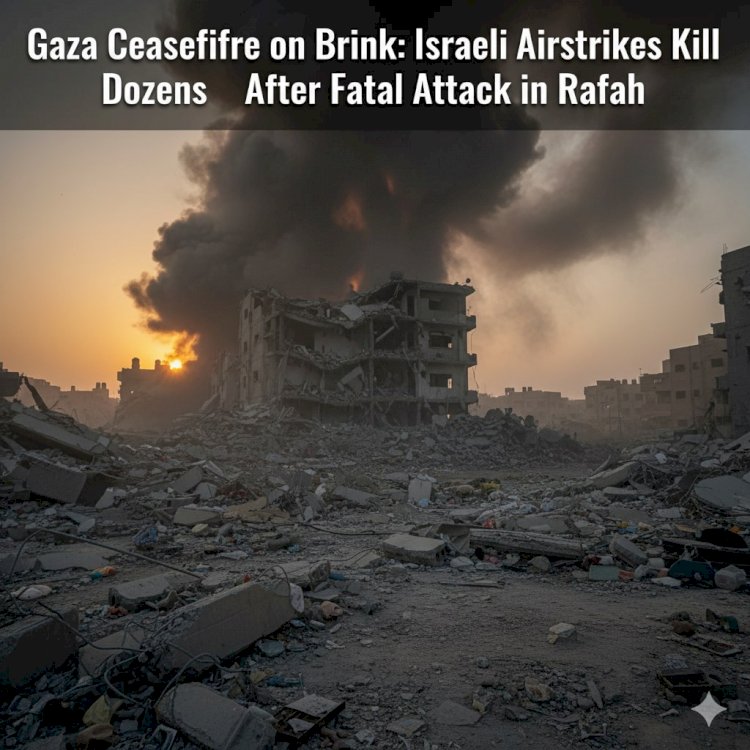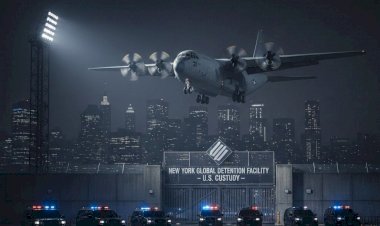Gaza Ceasefire Under Strain as Tensions Mount on Multiple Fronts

GAZA CITY / JERUSALEM – The fragile ceasefire holding in the Gaza Strip is facing significant new tests, with a recent surge in cross-border incidents and escalating rhetoric from both Israeli and Palestinian factions threatening to unravel the delicate calm. Hopes for a sustained peace, already tenuous, are now giving way to growing fears of renewed conflict.
The past 48 hours have seen a worrying uptick in violence. On Tuesday evening, three rockets were fired from Gaza towards Israeli territory, prompting retaliatory airstrikes by the Israel Defense Forces (IDF) against what it described as Hamas military targets in the northern Gaza Strip. While no casualties were reported on either side, the exchange marked the most serious violation of the ceasefire in weeks.
"Hamas will bear the consequences for any terror activity emanating from Gaza," stated an IDF spokesperson, reiterating Israel's policy of holding the militant group responsible for all aggression originating from the enclave.
Internal Divisions and External Pressure
Adding to the instability, internal Palestinian divisions appear to be widening. In Gaza, radical factions, reportedly unaffiliated with Hamas's political wing, have claimed responsibility for some of the recent rocket fire, indicating a potential struggle for control or a deliberate attempt to provoke a larger confrontation. This fragmentation makes it harder for any single entity to enforce a unified commitment to the ceasefire.
Meanwhile, in the West Bank, heightened tensions following recent Israeli security operations and settler violence have reverberated into Gaza. Palestinian leaders have warned that the ongoing humanitarian crisis in Gaza, coupled with a perceived lack of progress on reconstruction efforts, is fueling widespread frustration and despair among the population, creating fertile ground for renewed militancy.
International Calls for De-escalation
International mediators, including Egypt and the United Nations, are reportedly working behind the scenes to de-escalate the situation. UN Special Coordinator for the Middle East Peace Process, Tor Wennesland, issued a statement calling on "all parties to exercise maximum restraint and take immediate steps to reduce tensions."
However, the political climate remains fraught. Israeli Prime Minister Benjamin Netanyahu, facing domestic pressure from hardline elements, has vowed a "firm and unequivocal" response to any further attacks from Gaza. Concurrently, Hamas leadership has warned that Israel's actions in Jerusalem and the West Bank, particularly around holy sites, could lead to an "explosion" in the region.
Aid organizations on the ground in Gaza expressed deep concern for the civilian population, who would bear the brunt of any renewed hostilities. "The infrastructure is still reeling from previous conflicts," said a representative from a prominent NGO. "Any escalation would be catastrophic."
As both sides dig in, the immediate future of the Gaza ceasefire hangs precariously in the balance, with the international community bracing for what could be another volatile chapter in the enduring conflict.

 content-team
content-team 


















